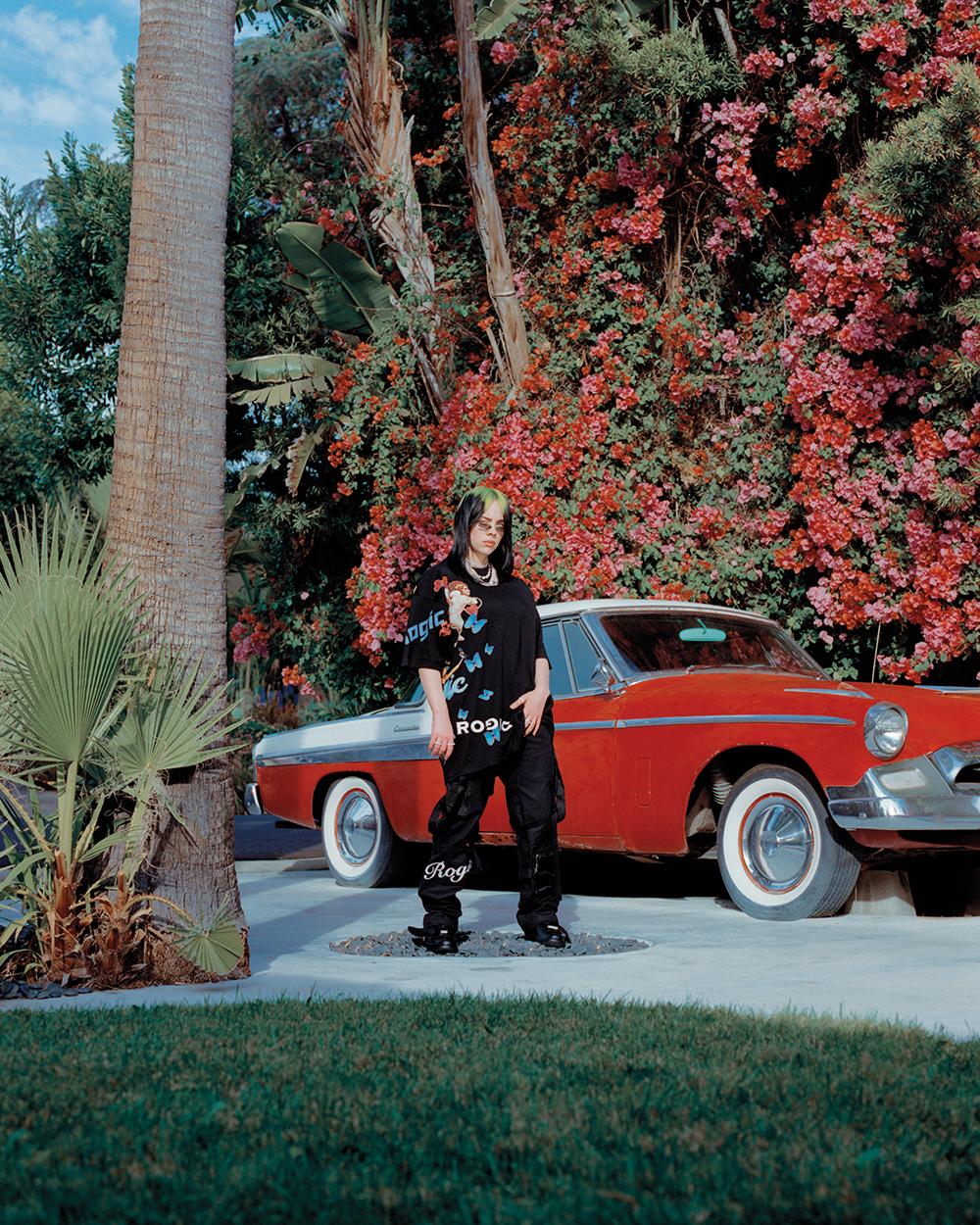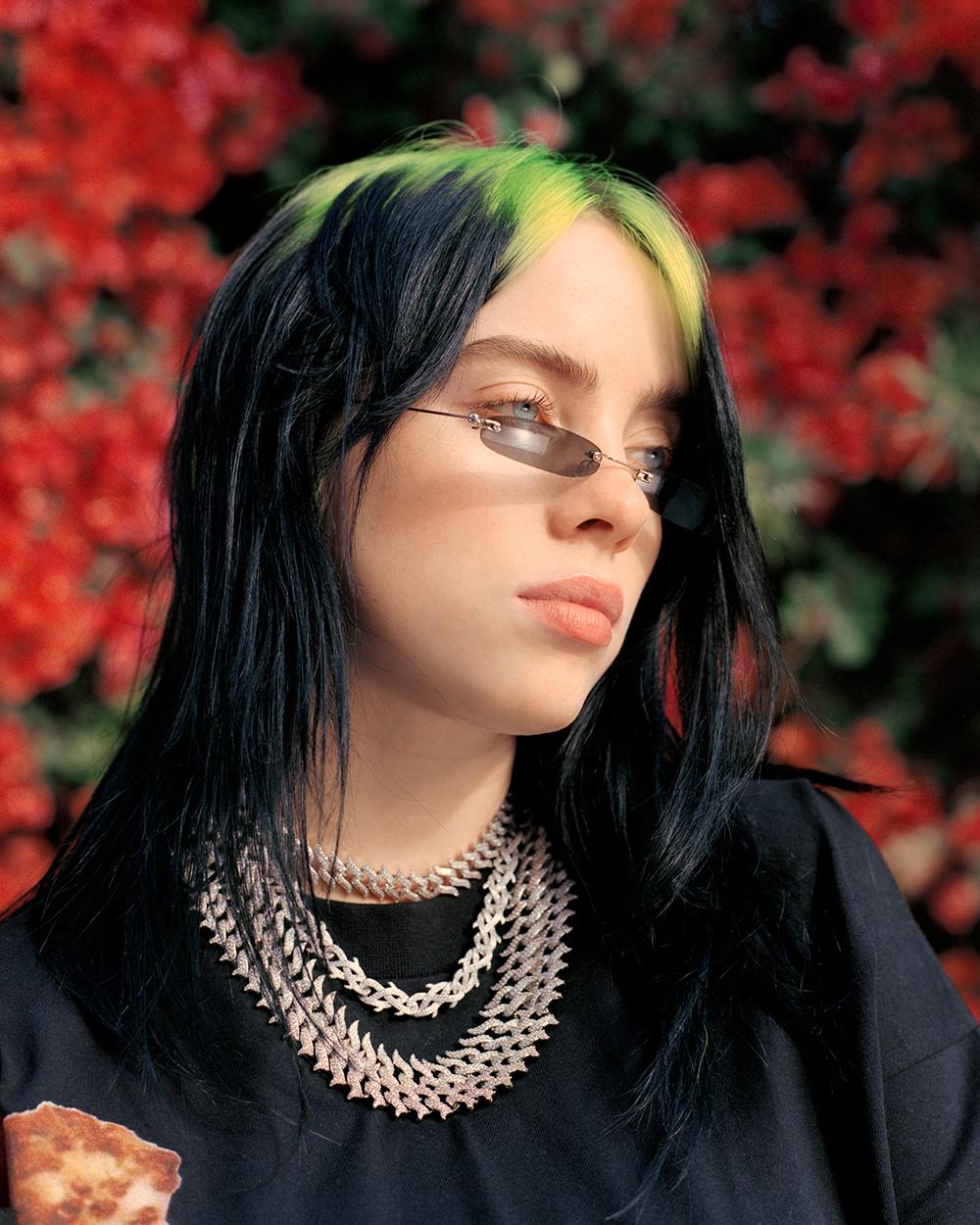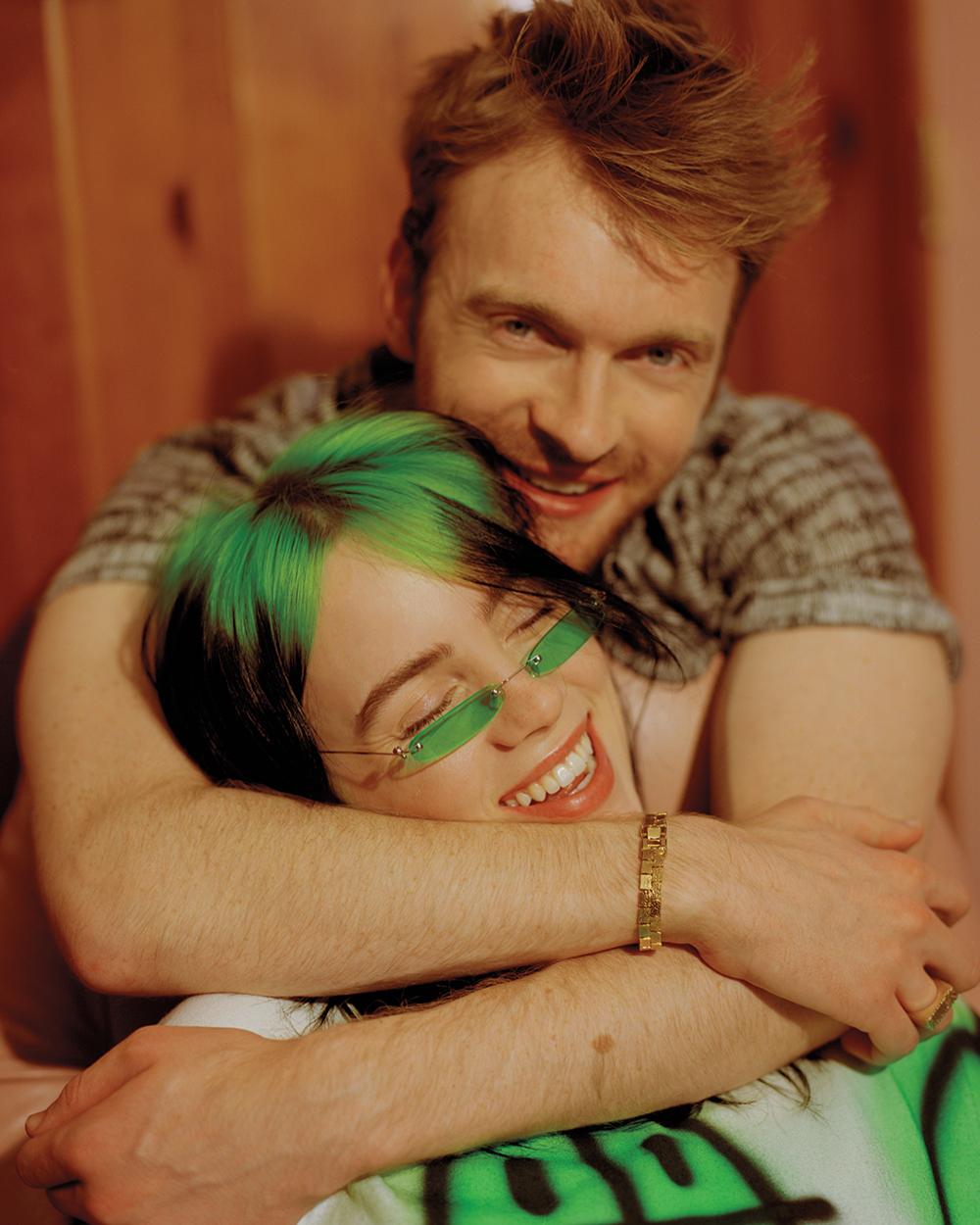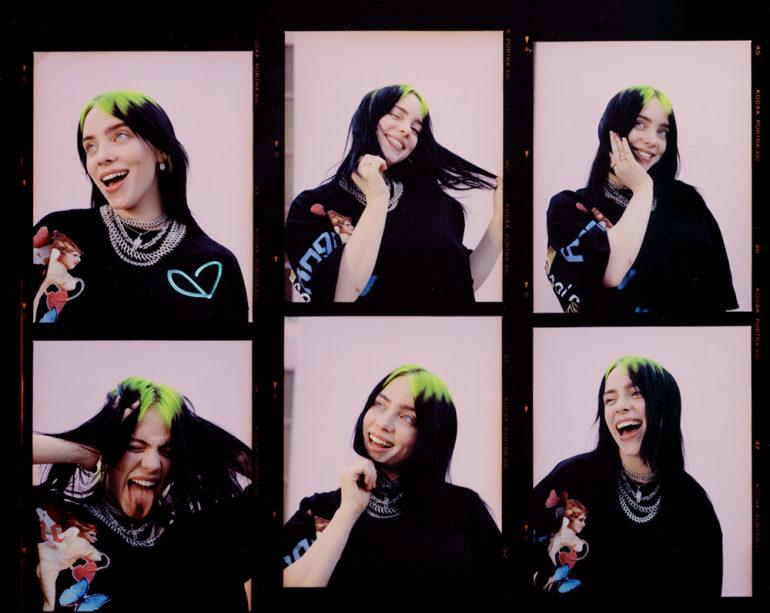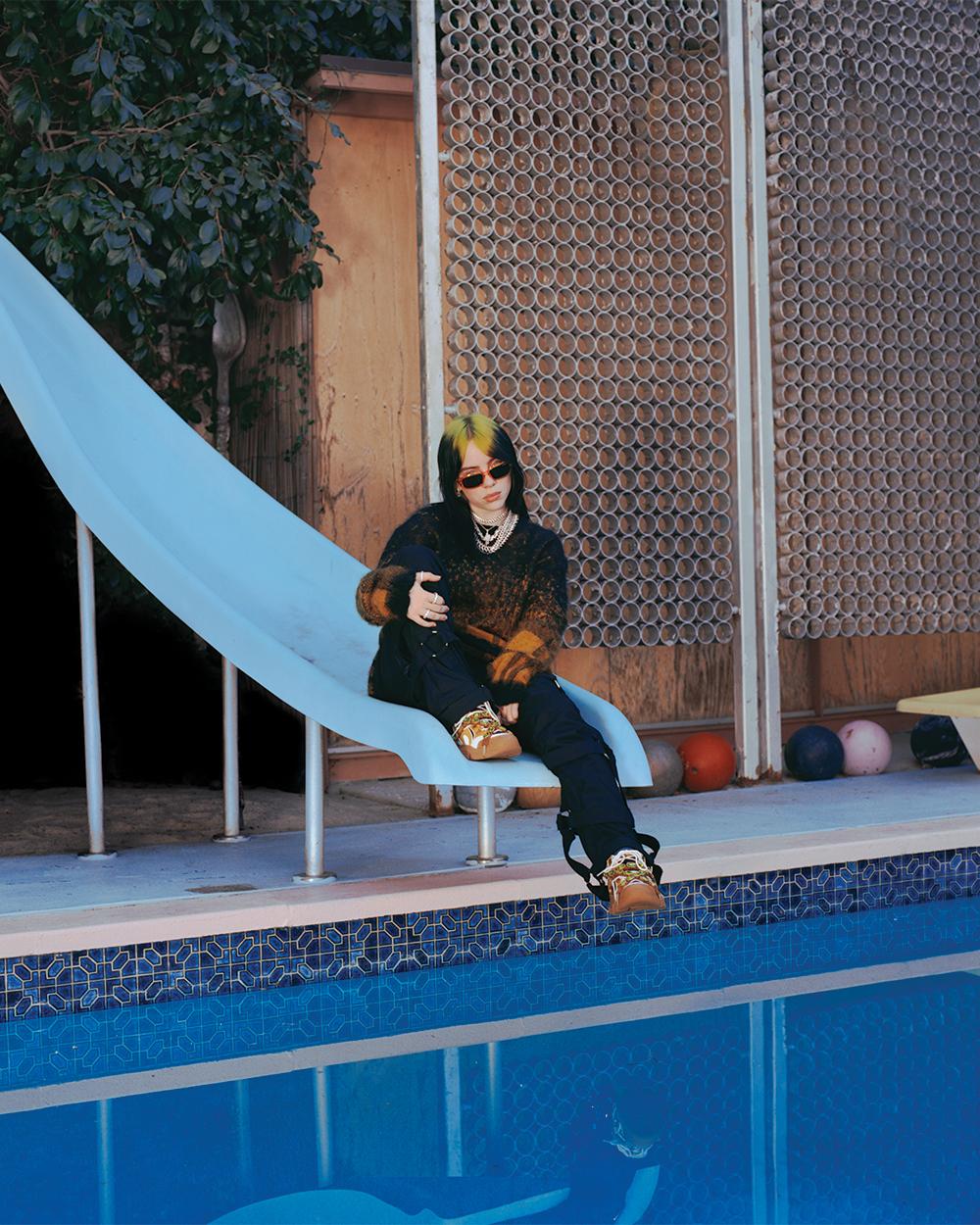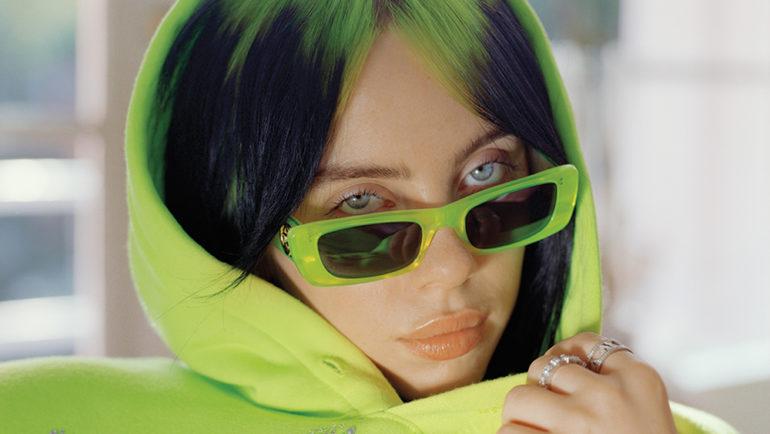How Billie Eilish Took Control of Her Career Without Losing Her Soul
By Jem Aswad
LOS ANGELES (Variety.com) – On a freakishly cold October Saturday in Texas, Billie Eilish is proving to a sold-out crowd at the Austin City Limits festival just how hard you can rock in a surgical boot. The 17-year-old has been performing with two sprained ankles for weeks, barely slowing down after hurting one by falling down stairs right before her concert at the Greek Theatre in Hollywood, and the other months later in a distracted moment while jumping onstage in Milan. Now she’s bounding across the boards as she launches into her hit “Bad Guy,” her singing barely audible above the slightly flat-pitched sound of thousands of young, mostly female voices chanting along.
Most artists would save their best-known song for last, maybe even an encore. But nothing about Eilish is by the book.
Unlike most contemporary pop fare, her songs often venture into dark lyrical territory, with titles like “Bury a Friend,” “Wish You Were Gay,” “Six Feet Under” and “Bitches Broken Hearts.” Eilish’s first video, for “Ocean Eyes,” shows her smearing makeup across her face; a subsequent clip, for “When the Party’s Over,” has black liquid pouring from her eyes like tears; for “All the Good Girls Go to Hell,” she’s a winged reptile who emerges from an oily swamp while explosions erupt around her. The visuals during her live shows are animated, nightmarish and Tim Burton-esque, featuring graveyards, creepy dolls and sinister silhouettes in dark forests. She performs “Bury a Friend” from a levitating bed, channeling Linda Blair one moment and Samara from “The Ring” the next. Ariana Grande she isn’t.
Eilish is uncompromising about her artistic vision.
“I didn’t realize that I was saying and touching on aspects in life that were deeper than the average song. I didn’t try to do that — I just did it,” she tells Variety. “When I was starting out, one of the only things I heard was that the music was too dark, too sad, too depressing, that it wasn’t happy enough. There was this period where all I was hearing was ‘Smile! Talk about how much you love yourself!’ — and I was literally at a time when I didn’t love myself. Now I can, but then, I was a little 14-year-old. I didn’t know anything about self-love or self-care. All I knew was the stuff that I knew, and a lot of it was bad and negative. That’s what I wanted to write about, and that’s why people relate to it. I mean, even the Beatles have songs that are just like, ‘I’m miserable!’”
Today, Eilish is a massive crossover success, having pretty much single-handedly revived the alternative format while also bending Top 40 radio to the left, based on a vision she oversees from concept through execution. During a rehearsal for an “Austin City Limits” TV appearance earlier in the week, Eilish inquires about the stage lights going dark after each song. Assured that it will be pitch black, as she wishes, Eilish responds, “Great! Love that! Now are we good here? Because I wanna leave.”
See exclusive outtakes from the Variety cover shoot HERE
The scene wouldn’t be so striking if the artist calling the shots wasn’t a diminutive, fluorescent-green-haired teenager. But make no mistake, Billie Eilish is a boss, the epicenter of an accidental family business that has become an industry of its own as she’s rapidly grown into the breakthrough artist of the year. Like most major stars, she’s surrounded by a group of people at nearly all times, a Navy SEALs-ish swarm that ranges from three to a dozen and moves as a single organism around her — management, security, publicists, creative directors, physical therapists and a seemingly omnipresent film crew (working on a documentary that looks likely to land on Apple TV Plus ), steering her from bus to hotel to venue and back again. (It can make for some comic scenes — before going onstage at the festival, an eight-person cloud followed Eilish for the 30 feet from her dressing-room trailer to the bathroom trailer.) Her 22-year-old brother, Finneas O’Connell, is her co-writer, bandmate and main musical collaborator and producer; her parents, Maggie Baird and Patrick O’Connell, both former actors, are salaried members of the crew, serving as a sort of empowered personal assistant/fan-outreach coordinator and utility player, respectively. But everyone else in the swarm treats her like the boss, which clearly suits her.
(Head here for our extensive interview with Eilish and Finneas about their music, songwriting process, influences and what’s coming next .)
“Yessir, I love it,” says Eilish in a rare window when she’s not performing, doing a meet-and-greet, signing merchandise, sound-checking or recording a new song with Finneas. “With my friend groups and things I did, I was always the one in charge, the alpha. I’ve always wanted to do my own sh–, be my own person — not controlling people, but controlling what I’m doing.”
Asked when his daughter’s assertiveness first manifested itself, Patrick says, “In hindsight, you could see it in the 3-year-old — she’s always been a ‘bossy britches,’” he laughs, referencing an old family term. “Some kids are funny or smart or walk early, and from the start Billie was very Billie, with great imagination and a good [artistic] eye. She’d make these little movies with her toy animals and her friends, and before she was Billie Eilish, she was thrifting and dressing in crazy ways: ‘Oh, this garbage bag will look good!’
“She has very strong ideas about what she wants artistically,” he continues. “She may be completely clueless about other things, but oh, my God, does she want the lights and the music and her clothes a certain way.” Her trademark attire: sneakers and oversized T-shirts and trainers, albeit designer and/or customized ones.
“We take the lead from her and set her up to be in control,” says John Janick, chairman and CEO of Interscope Geffen A&M. “I want artists with vision, who know what they want, and she had that at 14. She’s an old soul with a unique and strong point of view, and she’s like a Mack truck, strong-willed and unstoppable. She is the CEO of Billie Eilish.”
See exclusive outtakes from the Variety Billie Eilish cover shoot HERE
Born Billie Eilish Pirate Baird O’Connell and raised in L.A.’s Highland Park neighborhood, the young artist has racked up platinum certifications over the past two years for her debut EP, “Don’t Smile at Me,” and multiple singles; her double-platinum album “When We All Fall Asleep, Where Do We Go?” easily soared to No. 1 in 17 countries upon its release in March. She won two American Music Awards last month, including best new artist, and is up for six Grammys. “Bad Guy” has been streamed almost a billion times on Spotify; three of her other songs have crossed the half-billion mark. And in an era when hit records regularly have a half dozen or more writers and/or producers, Eilish writes and records nearly all of her material with Finneas, who recently dropped a solo EP, collaborated on songs with Camila Cabello and Selena Gomez, and is being aggressively pursued by several major labels.
Her touring business is even stronger. She’s headlined some of the world’s biggest festivals — including breakthrough performances at Coachella and England’s Glastonbury Fest in the spring — and her recently announced 2020 global arena tour immediately sold out its North American dates and most other territories, moving more than half a million tickets in the first hour. An enormous percentage of the audiences at her shows is wearing her official merchandise, much of which she designed herself, apparel income she can count alongside endorsement deals with Calvin Klein, Nike’s Air Jordan and others.
Ask the people around her why she’s hit it so big, and the default adjectives are that she’s “real” and “authentic” and “unique.” But Justin Lubliner, head of Darkroom, the Interscope-partnered label to which she is signed, posits a well-articulated theory: “She’s your best friend in high school or college,” he says. “She represents something people want for themselves — to express and connect, to say and do what they want. Her intelligence and the sophistication of her songs connect with adults and remind them of their favorite artists, and young people connect with her independence.”
Eilish’s rise was the result of a deliberate and strategic three-year process that brought a home-schooled 13-year-old to where she is today. She readily admits she was taken aback by the demands of being groomed for stardom. “I was not prepared for it,” she says. “I just liked music, and I didn’t know that I had to have a whole …” She gestures at the accouterments of touring life around her. “It was a really weird thing to be put on me when I was 15 years old.”
Her team — generally comprising her family, managers Danny Rukasin and Brandon Goodman, day-to-day manager Laura Ramsay, Lubliner, publicist Alexandra Baker and several Interscope execs — assembled around her in the months after “Ocean Eyes,” her breakthrough song, was first posted on SoundCloud late in 2015, and all along has worked to find an elusive balance between maintaining star-maker machinery and keeping an adolescent healthy.
See exclusive outtakes from the Variety Billie Eilish cover shoot HERE
“The gifts that come from this are great, although there’s quite a high price,” her mother says. “But Billie has a great team and great managers, and me and Patrick saying, ‘That’s too much!’ when it is. Something that’s been helpful has been saying to her, ‘The reason we’re doing this is because you’ve said you want that,’ and I think that helped her to cope with it.”
At the same time, from the beginning she showed a talent far beyond her years. “Even when she was 13, it was very clear that Billie was not just a great singer but had a keen eye for images and social media,” Rukasin recalls. “She only had like 10 posts on Instagram, but they all were cool. And based on how fast ‘Ocean Eyes’ was growing, it was clear they were going to need a team.”
Thus began a long and careful cadence of song releases, streaming-service-stoking and constant touring, much of it internationally, that climaxed with the release of her album “When We All Fall Asleep.” The payoff was much bigger than anyone expected, and although it came with a cost, Eilish insists that things are much better now. “I worked really hard for a long time, and I’ve gotten to where I don’t have to work as hard anymore,” she says. “I don’t even need to talk about how bad it was because I’m so happy in it now — it’s actually, like, great and I’ve been enjoying the shit out of it, and I just want it to get bigger.”
Eilish repeats that sentiment while sitting with Finneas for a video interview after taping their “Austin City Limits” TV performance. “Fame was brutal,” she says. “People forget I was literally a kid and I still am. I was overworked and I’m glad I was, because it’s really paid off now.” She then begins to talk about how much things have improved before she and her brother collapse into an age-appropiate giggling fit — the cause of which is unclear, like many sibling giggling fits — that scuttles several minutes of the interview.
However, Eilish does express seeming ambivalence about fame in her latest single, “Everything I Wanted ,” where she sings in a near-murmur, “I had a dream: I got everything I wanted / Not what you think, and if I’m being honest / It might have been a nightmare. … ’Cause everybody wants something from me now / And I don’t want to let them down.”
See exclusive outtakes from the Variety Billie Eilish cover shoot HERE
A staple of any Eilish concert is the gaggle of wide-eyed fans, many accompanied by parents, who line up for the nightly VIP meet-and-greets. Many come bearing elaborate gifts, each of which is carefully collected by Baird; several have homemade Eilish-themed T-shirts; a few even have tattoos. Each fan gets a minute or so with her, which usually consists of a big hug, a photo and a brief chat that Eilish often leads with compliments on a gift or along the lines of “Your shirt/hat/nails/shoes is/are fire!,” and closes with send-offs like “Be good to yourself!” Many leave weeping.
“I forget sometimes that they’re not literally my friends,” she says of her fans. “It’s weird, like, that’s probably the biggest con in it all: that people I’ve never met think I’m really close friends with them. And then they forget that I’m not, and sometimes say stuff at meet-and-greets or post things that are joking or sarcastic about how bad I look in [a certain] photo, and I’m like, wow, that’s so mean. But then I remember that it’s just part of being friends — you make fun of your friends as a joke, and they make fun of you back — so it’s all love, and I really, really don’t want it to change.”
Pausing to toy with a lace on her Gucci kicks, which are bedazzled with green jewels that shoot reflections all over the room, Eilish continues: “But then also, I have to be careful. If I say anything back, there’d be articles about me being mean, and also, I know from experience that when [you meet] somebody you’ve looked up to your entire life, even a joke can really mess you up.”
It doesn’t take a psychologist to posit the theory that Eilish’s relationship with her fans is in some way replacing the teenage friendships that most young people experience in school, which is something her family and team have monitored all along. At times over the past couple of years, one of Eilish’s friends would accompany the tour for a couple of weeks at a time, so she’d have a companion who wasn’t family, an adult or a fan. But Baird says as time has passed, the team has largely become family. “Bringing a friend on a couple of tours really helped, I think,” Baird says. “But most people her age are in high school, and she was finding they don’t have a lot in common. But somewhere in there she crossed over: She’s friends with people on the crew and [her team] now. If she could, Billie would have the entire team travel on one giant bus.” Indeed, before Eilish’s headlining concert at Houston’s 18,000-capacity Toyota Center, most of the touring team sat together for a huge vegan dinner in the arena’s backstage area; she sat with the crew.
And sometimes there are truly normal moments with fans. “There’s this group of girls I’ve met a couple times and they’re cool as hell,” Eilish says. “They followed me to my hotel — which I hate, please don’t come to my hotel — but I realized it was them and we just hung out alone in the parking lot at like 3 a.m. We talked and laughed and joked and played a game of ninja — it’s this game where you to stand in a circle and try to get each other out by hitting each other’s hands. But we just hung out, and I just was friends with them. And even other kids, wearing merch with my name on it, that come to my show — they’re like homies. I genuinely feel like I’m seeing my friends again.”
See exclusive outtakes from the Variety Billie Eilish cover shoot HERE
As fans go, you’d be hard-pressed to find a more bizarre trifecta of Billie Eilish admirers on the side of the stage during her ACL festival set a couple hours later: Guns N’ Roses’ Axl Rose, the Cure’s Robert Smith and Marcus Mumford of Mumford & Sons taking in the spectacle in all its glory. As is customary at most of her concerts, Eilish wanders out into the crowd toward the end of her set — sprained ankles be damned — but this time is met with unusually unpleasant results.
“Today was probably the worst it’s ever been,” she says later that evening in her hotel suite 20-odd floors above downtown Austin. “I felt attacked, in a way. It sounds weird to say, because if you [go into the crowd] you’re gonna get that reaction, and that’s totally fine and I expect it. But today, jeez, somebody choked me, and they pulled my arms so hard that security was literally tugging me away. People were pulling my hair; somebody stole my ring; they were grabbing my chest and parts of me that, like, I don’t need people grabbing! Of course, they’re just excited. I get it. But I do still have to live with it, you know?”
While the presence of the family and the team diffuses the pressure, they all feel it. “I wouldn’t say it puts a strain on the family but on all of us individually, although now there’s the team to help process it all,” Patrick O’Connell offers. “Oh, there are arguments, for sure, but I think in any good relationship there’s fighting, if it’s constructive. The family is something that I draw strength from, and I think we all do.”
Even Finneas, who has worked eyeball-to-eyeball with his sister for most of the past several years, downplays any tension. “I think most siblings [fight], but I’d say our evolution of that is that we argue passionately, and because we’re siblings we’re unfiltered about it. But we’re both such fans of each other that I don’t know that I really have the capacity or power to hurt my sister’s feelings.”
All agree that generally speaking, these are good problems to have. “Without speaking for her,” O’Connell says, “I believe she wanted to be seen and heard and what she does to matter, like we all do. Now, did she want to lose all of her freedom as a teenager and not be able to go to the mall? No. But she wanted to be iconic.”
Billie Eilish Photographed at Allee Willis’ Willis Wonderland
